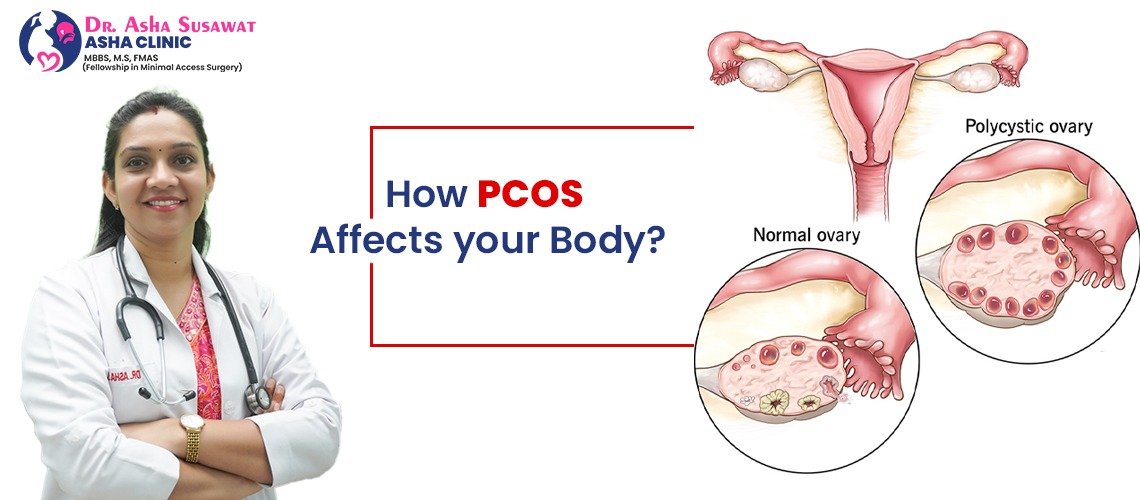How PCOS affects your body?
Want to learn how PCOS affects your body? Polycystic Ovary Syndrome (PCOS) is a prevalent hormonal disorder affecting women during their childbearing years. It is characterized by several key features: irregular or absent menstrual periods, elevated levels of androgens (male hormones), and the presence of multiple small cysts on the ovaries.
One of the significant concerns for women with PCOS is its association with various serious health conditions. These include an increased risk of type 2 diabetes, high blood pressure, cardiovascular issues, and potentially uterine cancer due to irregular shedding of the uterine lining. Additionally, PCOS often leads to challenges with fertility, as irregular ovulation can hinder conception.
Physically, PCOS manifests with symptoms such as weight gain, excessive hair growth (hirsutism), and acne, which can significantly impact a woman’s self-esteem and quality of life. Treatments for these symptoms may include cosmetic approaches like electrolysis or laser hair removal, alongside medical interventions aimed at managing hormonal imbalances and promoting regular menstrual cycles.
Management of PCOS
The management of PCOS varies depending on whether a woman desires pregnancy. For those planning to conceive, treatments often focus on inducing ovulation through medications such as clomiphene or letrozole. Lifestyle changes, including weight management through diet and exercise, are also crucial in improving symptoms and reducing the risk of associated health problems like diabetes and heart disease.
Regular medical care is essential for women with PCOS to monitor and manage their condition effectively. Seeking medical attention is advised if symptoms like irregular periods, excessive hair growth, acne, or unexplained weight gain occur. Early diagnosis and intervention can help mitigate long-term health risks associated with PCOS.
In conclusion, PCOS is a multifaceted condition that affects many aspects of a woman’s health and well-being. By addressing symptoms early and adopting appropriate treatments, women with PCOS can better manage their condition, improve fertility outcomes, and reduce the risk of developing serious health complications later in life.

